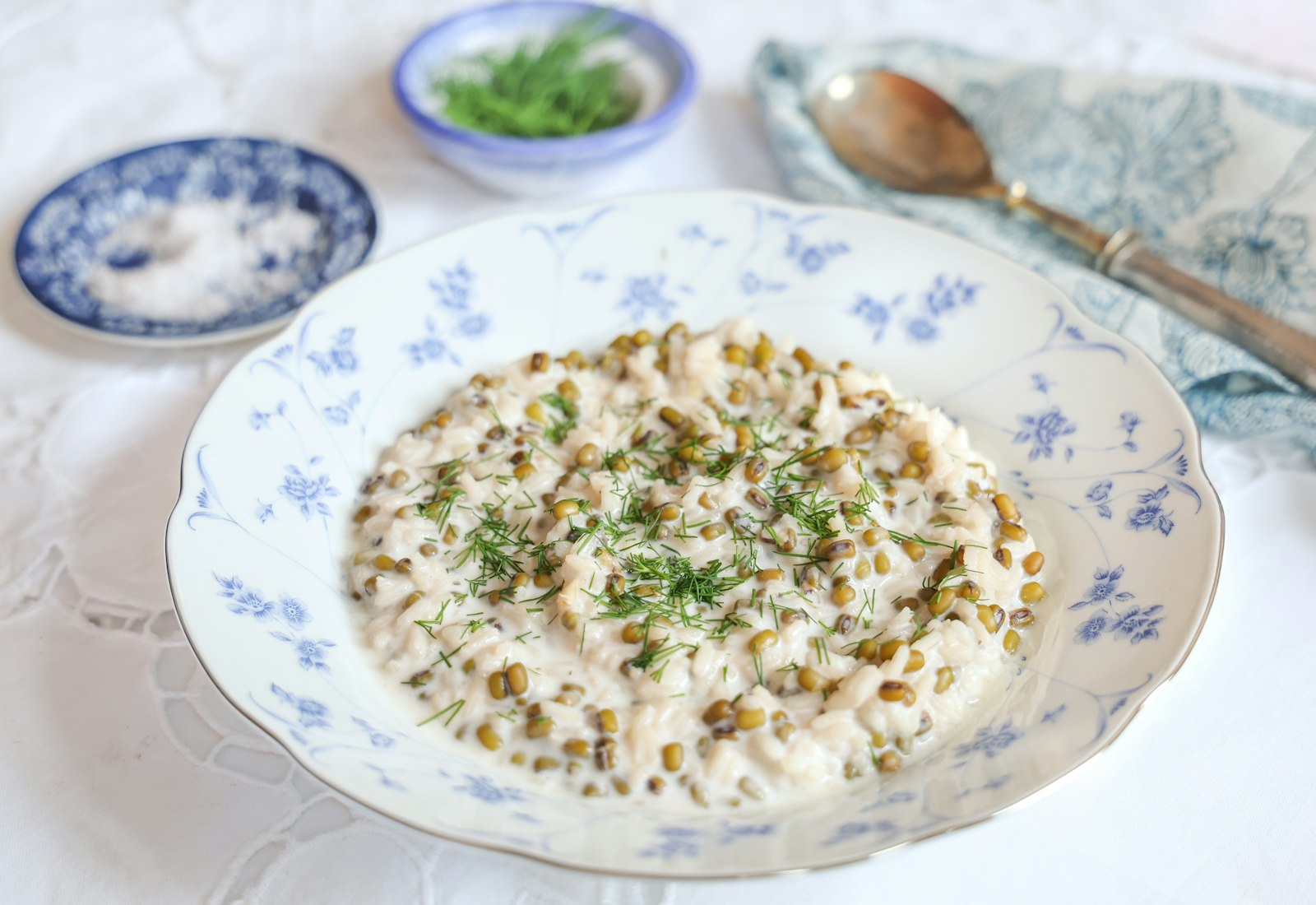Shared by Avraham Fuzaylov


During the peak of the summer heat, some religiously observant Jews abstain from eating meat during what are known as the Nine Days of Av. They lead up to Tisha B’Av, a day of mourning and fasting (August 2-3, this year) that commemorates the destruction of the Temples in ancient Jerusalem as well as other Jewish tragedies.
When Avraham Fuzaylov was growing up, those days were also a time of togetherness for his family. Because it was always hot, their meals included lots of salads, vegetables, and osh jzhurghotiy, a chilled Bukharian mung bean porridge that’s tangy, garlicky and made creamy with kefir. “This is the kind of dish that doesn’t beg for attention — it just quietly delivers comfort,” Avraham explains.
His family’s roots trace back to Iraq in the 1700s. From there, they migrated to Bukhara and later to Samarkand and Tashkent, in Central Asia. In 1989, his parents came to New York and settled in Brooklyn. “We felt like we belonged, even till this day, my parents do not want to move out of Brooklyn because of that feeling of belonging,” Avraham says.
For much of his childhood, his father owned an Uzbek restaurant, cooking dishes he knew from home. “I would go to work with him and I would always be surrounded by food and chefs. My dad would never let me cook anything at work because I was very little, so I would go home and tell my mom about it and I would practice,” he says. “I inherited both of their gifts.”
Today, Avraham is preserving recipes from his community through his project Bukharian Bites. It “is more than a passion project. It’s a responsibility. A promise to preserve the tastes, smells, and soul of where we come from. It’s a way to say: We were here. We are here. And this is what our ancestors gave us,” he adds.
Cooking note: Avraham’s wife makes a version of this recipe from her family that also includes black beans, which you can add if you like. “It’s a small twist that makes a meaningful impression — one of those subtle generational signatures that tells you exactly whose table you’re at,” he notes.
Sort through the mung beans, discarding any unripe grains — they will be smaller and darker. Place the mung beans in a fine mesh strainer and rinse thoroughly under cool water for 2 minutes.
Heat 7 cups of water in a kazan or Dutch oven over medium heat for 5-8 minutes, until warm.
Add the mung beans, increase the heat to high, and bring to a boil. Boil the mung beans uncovered for 20 minutes.
Reduce the heat to low, then add the rice and 1½ cups of water. Simmer uncovered for 30 minutes, stirring occasionally.
Season with 1 teaspoon of salt. Remove from heat.
Sprinkle ½ teaspoon of salt over the peeled garlic cloves. Using the flat side of a knife, press and scrape the garlic against a cutting board until the garlic forms a smooth paste.
Place the garlic paste into a medium bowl and pour in ¼ cup of boiling water to dilute it. Add the kefir, and stir with a wooden spoon until fully combined.
Pour the kefir sauce over the mung bean and rice mixture and stir gently until combined. Allow the mixture to come to room temperature, then chill in the refrigerator for 1 hour. The porridge can be served chilled or at room temperature. Garnish with fresh dill, if desired.
Store the porridge in an airtight container in the refrigerator for 3-4 days.